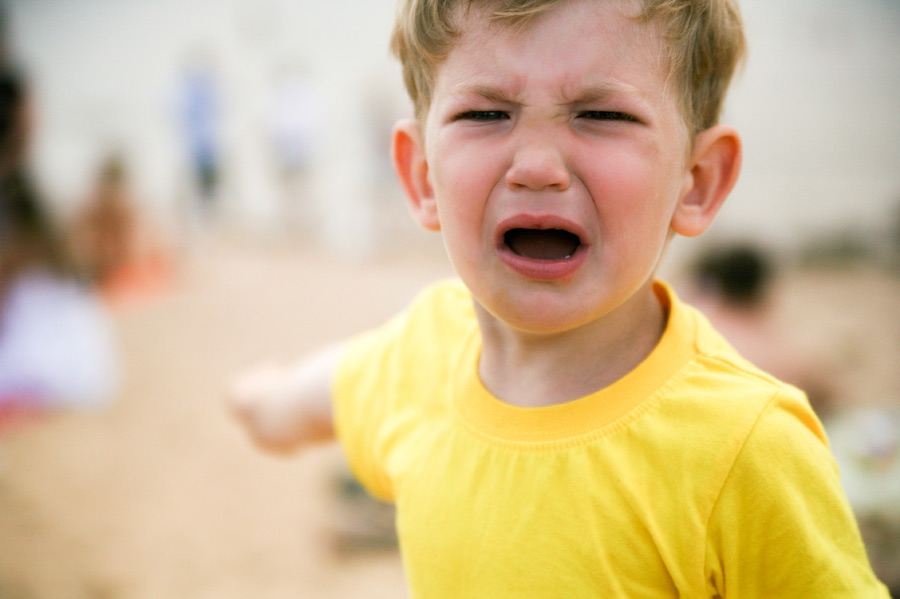In the exploration of human behavior, particularly in children, the dichotomy between kindness and cruelty is a subject of profound intrigue. The Bahá’í teachings offer a unique lens through which one can discern the innate tendencies of children—whether they are inherently inclined towards kindness or predisposed to mean-spiritedness. This notion extends beyond mere observational studies; it delves into the metaphysical and spiritual underpinnings of human nature.
Children, as vessels of potential, demonstrate a plethora of behaviors influenced by their environment, upbringing, and innate dispositions. To navigate this complex Web of characteristics, one must first acknowledge that children are not born with an immutable character but rather possess the capacity for both benevolence and malevolence. This inherent duality beckons us to reevaluate common assumptions about their nature.
The Bahá’í perspective posits that children are, by nature, inclined toward kindness. This assertion is rooted in the belief that all human beings are created noble and inherently good. In this context, kindness is not merely a behavior but an intrinsic part of the human spirit. The teachings assert that children are born without sin; their initial state is one of purity and innocence. However, the cultivation of these virtues necessitates guidance and nurturing.
At the core of the Bahá’í belief system lies the admonition to instill in children the virtues that will help shape their character. The teachings emphasize the significance of education—not solely academic instruction, but comprehensive moral education that nurtures compassion, empathy, and love. The environment in which a child is raised plays a paramount role in reinforcing these virtues. Thus, parents and educators are entrusted with the sacred responsibility of modeling kindness and promoting equitable interactions.
To underscore the cultivation of kindness, it is essential to consider the role of empathy in a child’s development. Empathy, the ability to understand and share the feelings of others, can vastly influence a child’s social interactions. When empathy is fostered, children are more likely to engage in prosocial behavior—actions intended to benefit others. Authentic acts of kindness are often catalyzed by empathetic understanding. Therefore, an educational framework that emphasizes empathy can pivotally shape the developmental trajectory of children, steering them away from tendencies towards cruelty.
The surrounding societal context, however, can significantly overshadow this inherent kindness. The prevalence of adverse influences—such as bullying, media violence, and competitive environments—can foster an atmosphere where mean-spiritedness flourishes. The Bahá’í teachings admonish individuals to create nurturing surroundings that diminish these influences. In essence, children are a reflection of their environments; what they observe, they often emulate. Consequently, fostering kindness in children necessitates a community-wide commitment to creating a culture that promotes compassion and respect.
Moreover, the teachings underline the notion of the interconnectedness of humanity—a principle that resonates deeply within the Bahá’í Faith. When children learn that their actions can resonate beyond their immediate circle, they begin to comprehend the impact of their behavior on the broader community. The innate kindness within them becomes strengthened by a sense of belonging and responsibility. It fosters a communal spirit that encourages acts of kindness towards others, reinforcing the idea that kindness can become a normative behavior within society.
The significance of role models cannot be understated. Children often mirror the behavior of adults in their lives. When parents, mentors, and leaders exemplify kindness and altruism, children are more likely to adopt similar behaviors. This observational learning serves as a powerful reminder of the dual responsibility of adults to embody the virtues they wish to instill in the younger generation. Consistency in modeling these behaviors is crucial, for children are astute observers even in the most subtle actions.
Nonetheless, it is crucial to acknowledge that the notion of children as inherently kind does not negate the reality that they occasionally exhibit unkind or cruel behaviors. This complexity does not reflect an absence of kindness but rather highlights the multifaceted nature of human development. When children display mean behavior, it often indicates unmet needs or emotional distress. Understanding this perspective enables caregivers and educators to address the underlying issues rather than merely focusing on the behavior itself.
The process of transforming unkind behavior into expressions of kindness requires intentionality and patience. The Bahá’í teachings advocate for strategies that promote reconciliation and understanding, rather than punishment. Encouraging children to articulate their feelings, understand the ramifications of their actions, and engage in dialogues about kindness fosters an environment conducive to personal transformation.
Through the lenses of the Bahá’í teachings, the journey of understanding the nature of children reveals profound insights. Rather than viewing children as naturally mean or inherently kind, it is more enlightening to perceive them as beings filled with potential, shaped by their experiences and surroundings. This perspective invites a collective responsibility to cultivate environments that nurture their innate kindness, allowing it to flourish throughout their lives. It implores society to redirect its focus toward empathy, education, and community engagement, which can ultimately pivot the course of human interactions towards greater kindness and understanding.
In conclusion, the exploration of whether children are naturally mean or kind invites us to reflect on the broader implications of behavior and upbringing. The Bahá’í teachings offer a compelling argument that kindness is an innate disposition that flourishes in favorable conditions. Through intentional cultivation of virtues, conscious modeling of behavior, and the establishment of supportive environments, we can collectively shape a generation that embodies compassion, empathy, and kindness—a testament to the profound capabilities of the human spirit.
